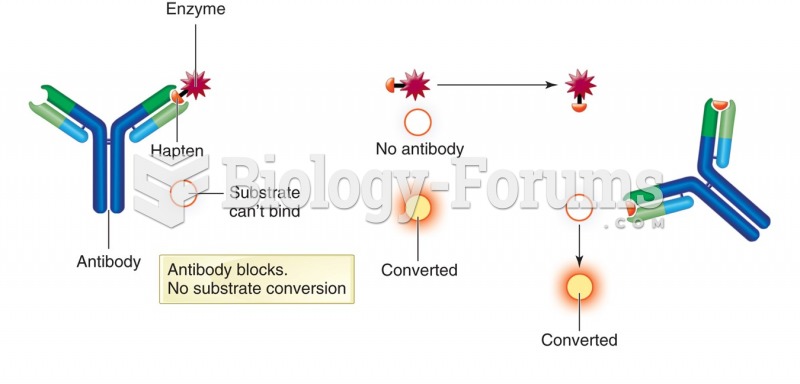|
|
|
There are more sensory neurons in the tongue than in any other part of the body.
People with high total cholesterol have about two times the risk for heart disease as people with ideal levels.
Pink eye is a term that refers to conjunctivitis, which is inflammation of the thin, clear membrane (conjunctiva) over the white part of the eye (sclera). It may be triggered by a virus, bacteria, or foreign body in the eye. Antibiotic eye drops alleviate bacterial conjunctivitis, and antihistamine allergy pills or eye drops help control allergic conjunctivitis symptoms.
Nearly 31 million adults in America have a total cholesterol level that is more than 240 mg per dL.
Medication errors are more common among seriously ill patients than with those with minor conditions.






